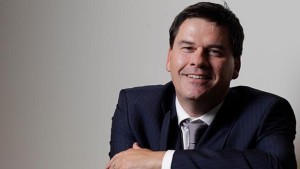Business has a duty to refugees
A leading business figure has called on Australian companies to help find jobs for Syrian refugees who have come to Australia fleeing a brutal conflict also saying the nation could take even more refugees.
Chief Executive of the Australian Industry Group Innes Willox was recently part of an Australian business delegation that visited refugee camps and community centres in Lebanon and southern Turkey.

Leading business figure, Innes Wilcox, calls on Australian companies to help Syrian refugees find employment
The delegation included prominent business leader Tony Shepherd and was aimed at learning more about what Syrian refuges had experienced and their needs.
Australia has agreed to take 12,000 refugees from the conflict in Syrian and Iraq.
Mr Willox said the Australian business community knew it has a key role in helping this resettlement process.
“We need to find jobs, training or, if necessary, requalification for those who arrive, so they can make their way as quickly as possible,” he said writing in The Age.
“What we heard in the camps was that the displaced Syrians naturally want to go home. They now realise that is impossible when their cities have been reduced to rubble, the conflict could go on for years and the rebuilding could take decades.
“These people overwhelmingly want peace and stability, they want an education for their children and they want a job to find economic opportunities and to make a contribution to their new community,” he said.
Mr Willox said the business community’s effort to help, through the Friendly Nation Initiative, was not a political campaign by business leaders.
“It is recognition that we can play a role to help blameless people get back on their feet and contribute to our nation. We have been overwhelmed by the positive response to our initiative by leaders of Australian businesses, large and small, who have pledged to work with government and resettlement agencies to give these people a chance if possible,” he said.
“Those of us who made the journey to the camps to see things first hand were struck by the optimism of the people we met.
“One conversation among many stands out. It was with a highly qualified English-speaking nurse looking to migrate to Australia with her professional husband and two children. All she wanted after four years of seeing their savings evaporate was the chance to start again and be a productive and giving part of a peaceful community.
“I would have that same wish, too, if I had seen my mother’s throat slit in front of my children and me by Islamic State members who had kicked in the front door looking to execute my spouse, who happened not to be home. She fled then and there with her husband, children and not much else. Now she wants a fresh start.
“It was a conversation full of hope and optimism. She and thousands of others need a job to deliver on that hope and optimism. Business recognises it has a role to play in that delivery and is increasingly ready to step up to the plate.
“It was not a conversation that will simply flicker by. It was a conversation that will stay with all of us who were there forever,” Mr Willox said.
Laurie Nowell
AMES Australia Senior Journalist












